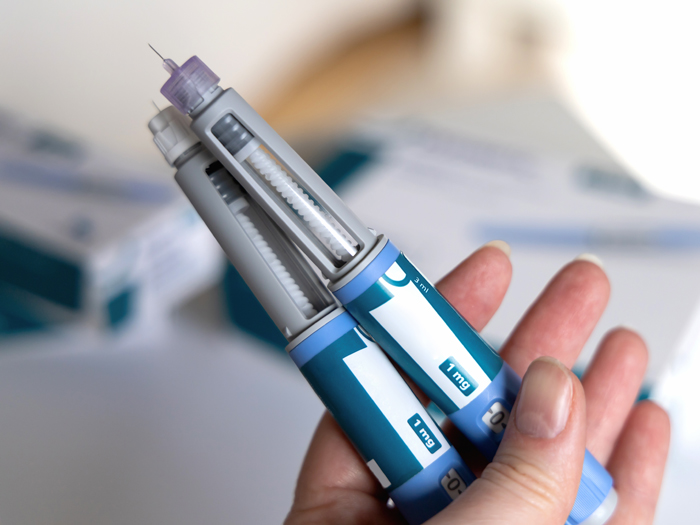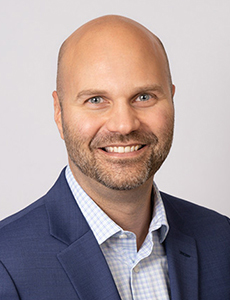Nutritional Supplements
A Bitter Pill

In February, New York Attorney General Eric T. Schneiderman asked GNC, Target, Walmart, and Walgreens to stop selling a variety of store-brand nutritional supplements after DNA tests indicated that only 21 percent of the products contained the plant species listed on the labels, and more than a third contained plant species not on the labels.
Now, a multistate coalition of attorneys general pursuing an expanded probe of the nutritional supplement industry is asking Congress to launch a comprehensive inquiry and to consider a more robust oversight role for the Food and Drug Administration (FDA).
The Council for Responsible Nutrition (CRN), a supplement industry trade group, is questioning the validity of the New York attorney general’s DNA tests.
CRN says the tests have been “roundly criticized by botanical scientists who question whether DNA barcoding technology is an appropriate or validated test for determining the presence of herbal ingredients in finished botanical products.”
According to CRN, DNA can be damaged or removed during the manufacturing process. And since DNA barcoding does not indicate the amounts of ingredients found in the products, any contaminants found may be within “well-established legal thresholds that allow for trace amounts of some ingredients.”
VIDEO: CBS reports on the claims by the New York attorney general that some store brand supplements could “significantly endanger” consumers.
Jim Walters, managing director of Aon’s life sciences industry practice group, said the controversy is “a lot to do about nothing.”
But more than a dozen lawsuits have already been filed in connection with Schneiderman’s findings.
The most immediate exposure could be product liability if there is evidence of bodily harm — for instance, an allergic reaction to one of the unlabeled ingredients.
Phil Walls, chief clinical and compliance officer at myMatrixx, thinks such liability would be relatively narrow and potentially hard to prove.
“The repercussions would be proportional to the harm done. So if the product caused death, that’s going to be severe. But if it simply didn’t do what it was supposed to do, then I would think that the class action would be much smaller,” Walls said.
Walters agreed that any litigation would likely focus on bodily injury.
“In order for their product liability carriers to have a claim, there needs to be bodily injury, there needs to be a problem that’s not just something like they wouldn’t have bought it if they had known this and they seek reimbursement. That’s outside the scope of insurance,” Walters said.
“Think of the billions of dollars a year spent on supplements for people trying to drive better health results.” — Mark Ware, senior vice president and managing director, technology and life sciences industry practice, IMA Financial Group
Others, including Mark Ware, senior vice president and managing director of the technology and life sciences industry practice at IMA Financial Group, said allegations of harm could focus on health benefits denied to consumers who took a product that was missing the labeled active ingredient.
“Think of the billions of dollars a year spent on supplements for people trying to drive better health results.
“If they’re not driving those health results and they feel they’ve been injured, there’s going to be people banging on the door claiming all types of bodily injury because they haven’t been getting the benefits of the … supplements that have been touted as a benefit to them,” Ware said.
Ware sees broader liability issues, as well.
“This is going to trigger more than just potential product liability claims,” he said.
Companies that are publicly traded could see shareholder values impacted, potentially affecting directors and officers coverage, he said. There could also be allegations of false advertisement that could impact general liability policies.
“There are a lot of ways these claims could come about,” Ware said.
The manufacturers would likely be primary targets, but retailers may be exposed as well.
According to Ware, retailers are generally contractually indemnified and held harmless in the event of any claim or litigation due to a fault in a product.
But he pointed out, “As a retailer selling that product in your store, you will still have defense costs and could incur indemnification if [these manufacturers] don’t have the wherewithal to withstand the kind of class action suits that are coming their way.”
If the manufacturers are overseas, that may also make the retailers more attractive to plaintiff’s attorneys.
Insurers Pay
Either way, the party ultimately on the hook may be the manufacturer’s or retailer’s insurer. If the labeling discrepancies were due to outright fraud, as opposed to human error or equipment failure, that would trigger exclusions to coverage.
But such fraud may not be easy to prove.
“A court of law would have to judge that there was truly a fraudulent act and that they did it intentionally,” said Ware.
“Until fraud is proven, I don’t think these carriers are going to be able to walk away from it.”
Walters agreed.
“In any major litigation, carriers will point to exclusions to reserve their rights. So could you envision a situation where someone is reserving their right based on that? Yes. But I think that’s a stretch and I think they would have a hard time upholding that exclusion.”
And litigation could be quite costly.
“There’s a lot of ways these claims could come about, but I think in order to prove this, it’s going to take a little bit of time and a lot of litigation costs,” Ware said.
“I would imagine that the number of expert witnesses that are going be called in to testify for both sides would be lengthy, and it is simply a matter of who has the best experts. It’s just not an easy question to answer,” said myMatrixx’s Walls.
Ironically, if it comes down to a battle of expert testimony, the extensive resources that make the retail chains attractive targets for litigation would make them particularly formidable legal opponents as well.
Reputational Risk
The largest impact of the controversy could have to do with consumer perceptions of individual brands and the industry as a whole.
Walls, a former retail pharmacist, noted that, “If the company has a good reputation, you stock their products. If they don’t, you avoid them.
“People would always ask me the same question: ‘Which brand of supplements should I buy?’ And it always came down to nothing more than trust,” Walls said.
Even if retailers find different manufacturers for their store brands, any loss of consumer trust would likely be directed at the store-brand name on the front of the bottle rather than the manufacturer listed on the back.
GNC has already moved to mitigate any loss of trust by agreeing to implement a new national testing regimen that exceeds current FDA requirements — and uses some of the same testing methods criticized by CRN.
“People would always ask me the same question: ‘Which brand of supplements should I buy?’ And it always came down to nothing more than trust.” — Phil Walls, chief clinical and compliance officer, myMatrixx
Its agreement with the New York attorney general’s office stipulates that “GNC will perform DNA barcoding on the ‘active’ plant ingredients used in its products [and] implement testing for contamination with allergens.”
“It puts them in a better defensive position,” Ware said, “unless they don’t follow through with their own guidelines.”
Without that follow-through, the move could be a double edged sword.
“If they had had [a testing regimen] in place and this had still happened, I would think that would increase liability,” said Walls.
The controversy may also affect the supplement industry’s regulatory framework, largely defined by the Dietary Supplement Health and Education Act of 1994 and Good Manufacturing Practices established by the FDA in 2007.
Some, like Walls, think current oversight is too lax.
“With supplements, there are no regulations at the manufacturer level, no regulations at the distributor level, no regulations at the retail level.
“Only at the point of the consumer do the regulations come into play. … The only restriction on supplement manufacturers is that they cannot make false claims, and no one knows if they have made false claims until that product hits the market,” he said.
And while “false claims” might refer to claims of benefit or efficacy, they “could also refer to what the products actually are, and could trigger the FDA’s involvement.”
Walters disagreed.
“The regulatory oversight is, I think, stronger than what common knowledge in the consumer world knows. FDA is strongly regulating.”
But, he added, most supplement manufacturers “believe very strongly in their reputations and their quality of manufacturing and ingredients, so to some degree I think many would welcome additional oversight.”
As for any negative impact on those insuring the supplement industry, Walters is unconcerned.
“We believe adamantly that this should not affect rates, pricing or availability of coverage.
“This is something that should not be a big issue for the insurance underwriting community that underwrites this sort of business.”











